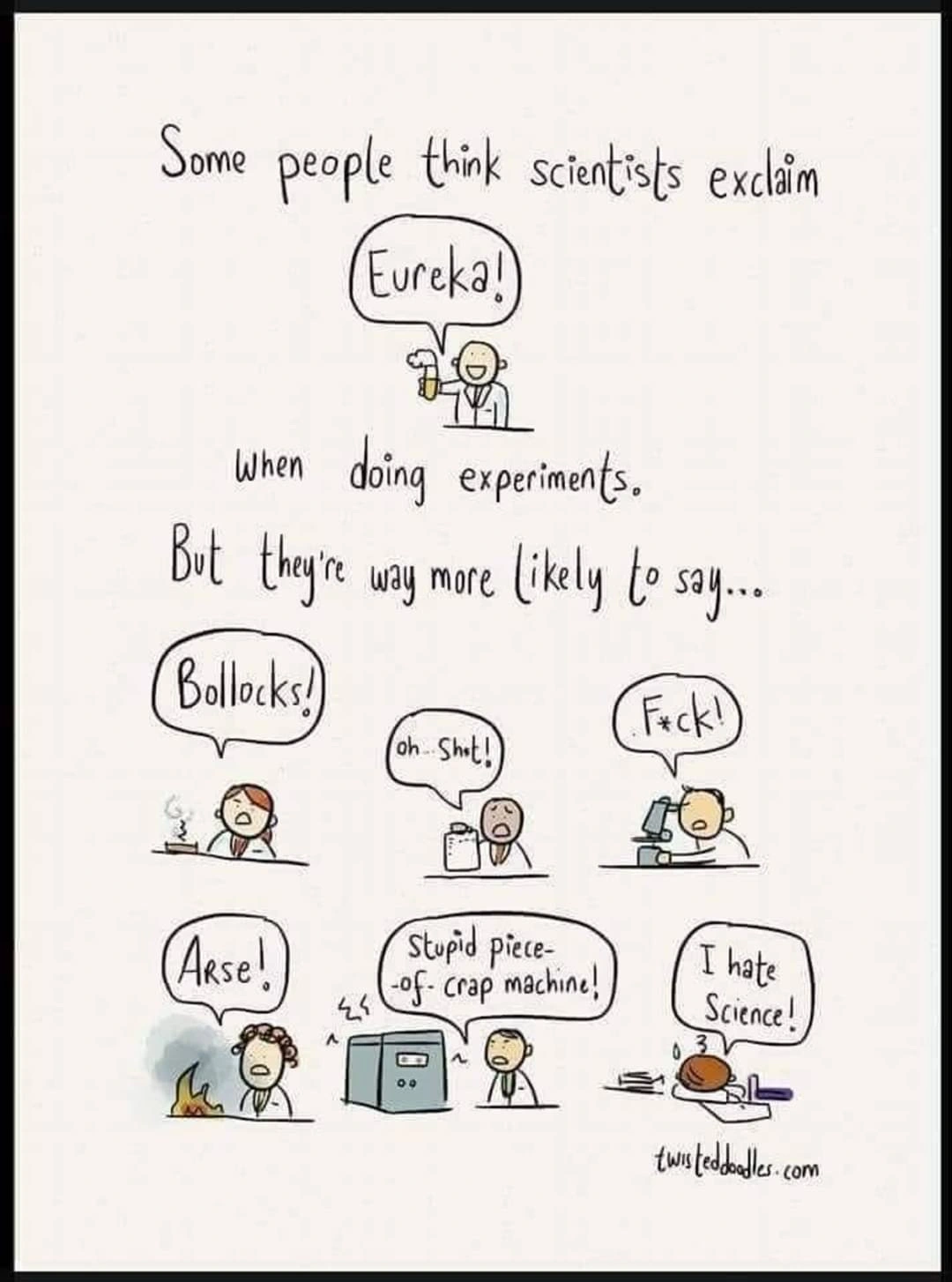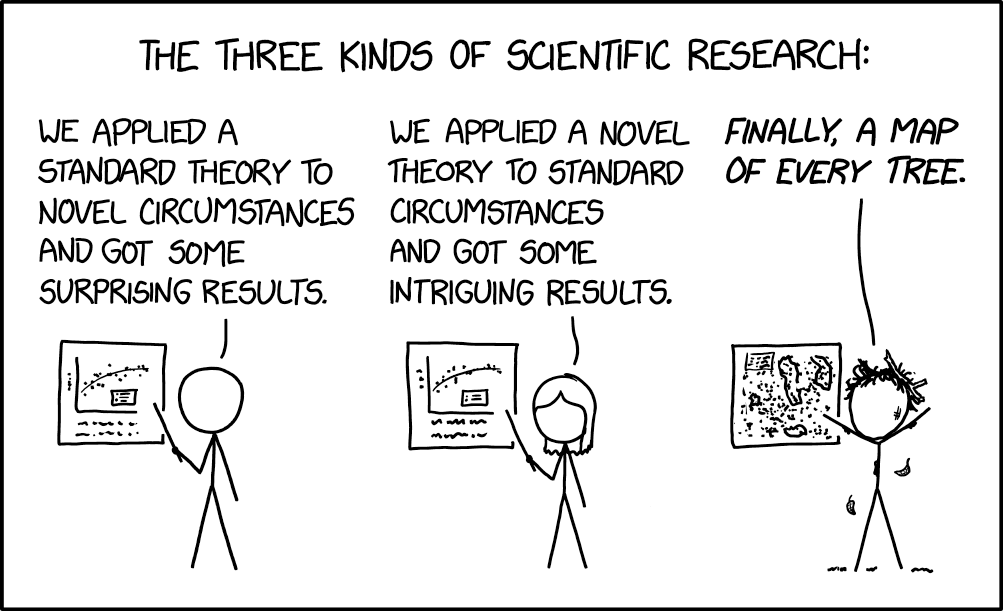- cross-posted to:
- [email protected]
- cross-posted to:
- [email protected]
alt text:
The secret fourth kind is ‘we applied a standard theory to their map of every tree and got some suspicious results.’
Then there’s also the flat-earther style: “We applied a flawed model and flawed methodology to standard circumstances and got the results we wanted!”
I guess we need a new comic to address all the different kinds of pseudo-science.
That’s easy! We call that Garbage In Garbage Out!
What about ‘we applied a standard theory to standard circumstances and somehow the results aren’t right and it’s probably our fault’
Business as usual, just another day at the lab. People using actual real world samples instead of the expensive standards to produce a very messy calibration squiggle. Also, the machine probably requires some maintenance from time to time.
Should just assume a perfectly spherical cow in a vacuum for simplicity’s sake 🤷
Oddly enough, the lack of air pressure in a vacuum would have the effect of trying to turn a regular cow into a sphere.
(Do not do this. Not even if the cow is already dead. Thanks.)
Do not do this.
Dammit, there goes my weekend! Oh well, guess I can still just eat that dead cow that’s been taking up space in the lab 🤷
The most exciting phrase to hear in science, the one that heralds new discoveries, is not “Eureka!” but “That’s funny …”

My favorite is the one on fire
Not to be confused with “is it supposed to be making a noise”, which is usually pretty bad
The one I see the most is:
“We avoided any semblance of rational experimental design and got significant results.”
We were awarded grant money from a corporation and got results that are favourable to them but require further grants to really boost that evidence up a notch, wink wink
If all else fails, use “significant at a p>0.05 level” and hope no one notices.
source: xkcd
There is also “We did nothing of value”
Aka “we applied a standard theory to standard circumstances and got the expected result” - one can argue it does help in a way by providing another dataset although it didn’t really accomplish anything it can be useful for student research projects in that field.
No I meant wasting time with useless stuff
I’m afraid tree mapping isn’t yet in it
It is. But it groups trees that are next to each other. You can add a single tree in the “Things” overlay
Content notice on explainxkcd:
This explanation may be incomplete or incorrect: Created by a DEPTH-FIRST TREE SEARCHER
😄
Don’t forget “these are novel circumstances and so we attempted something, but really the circumstances are so novel that just documenting them is pretty neat”
We applied a map of every tree to a set of all possible sets we’re waiting on the results







